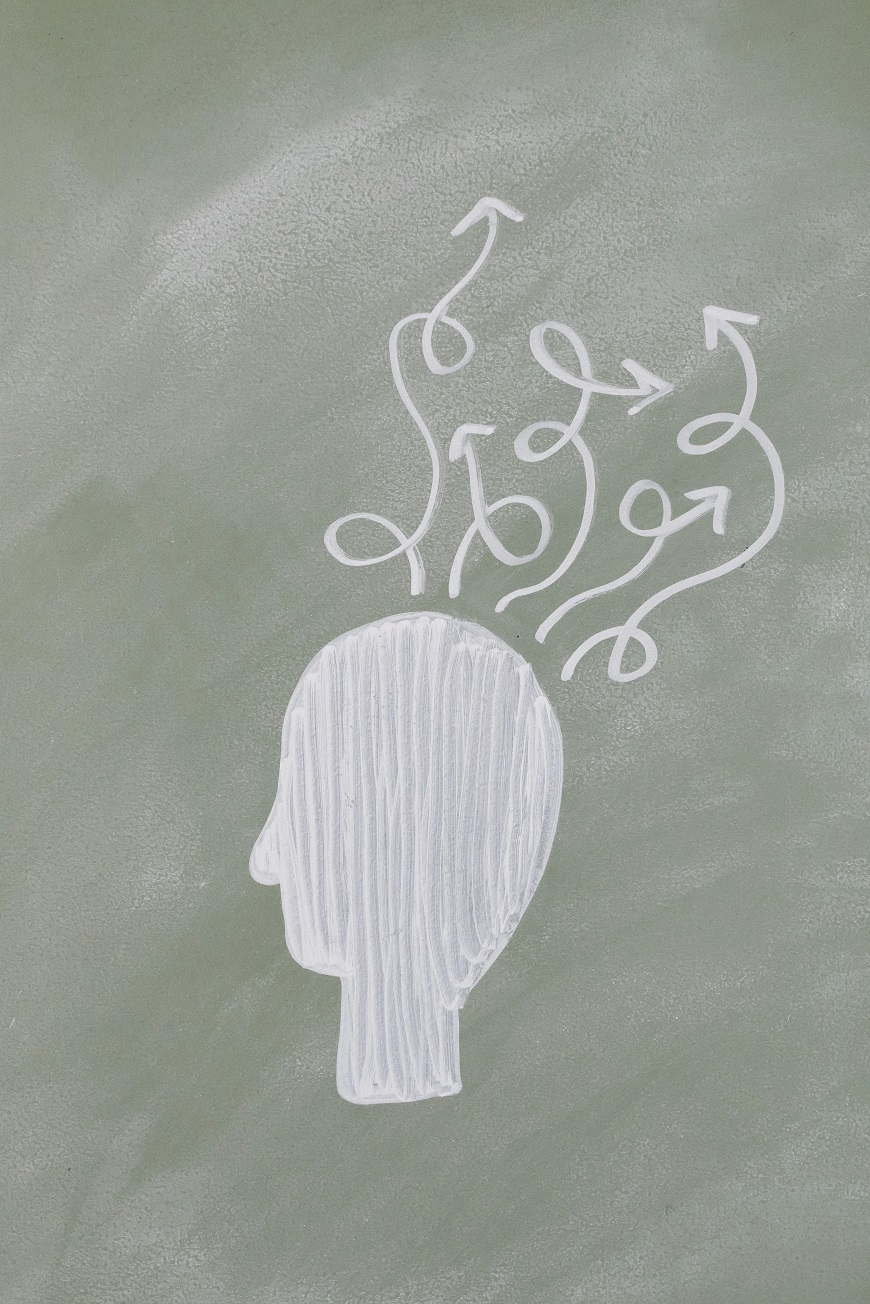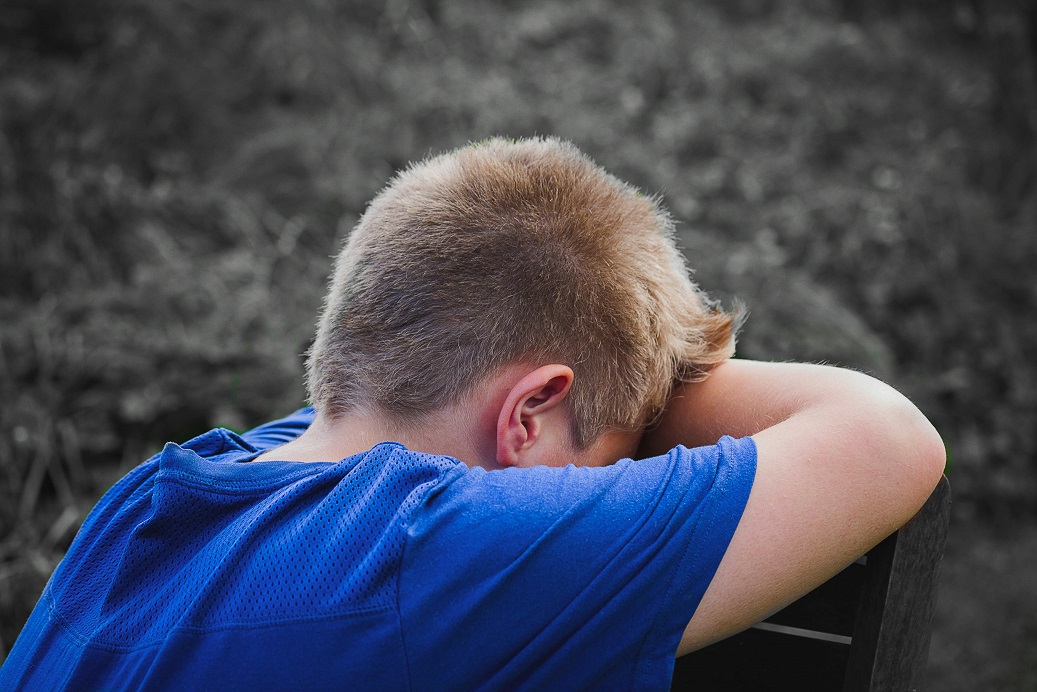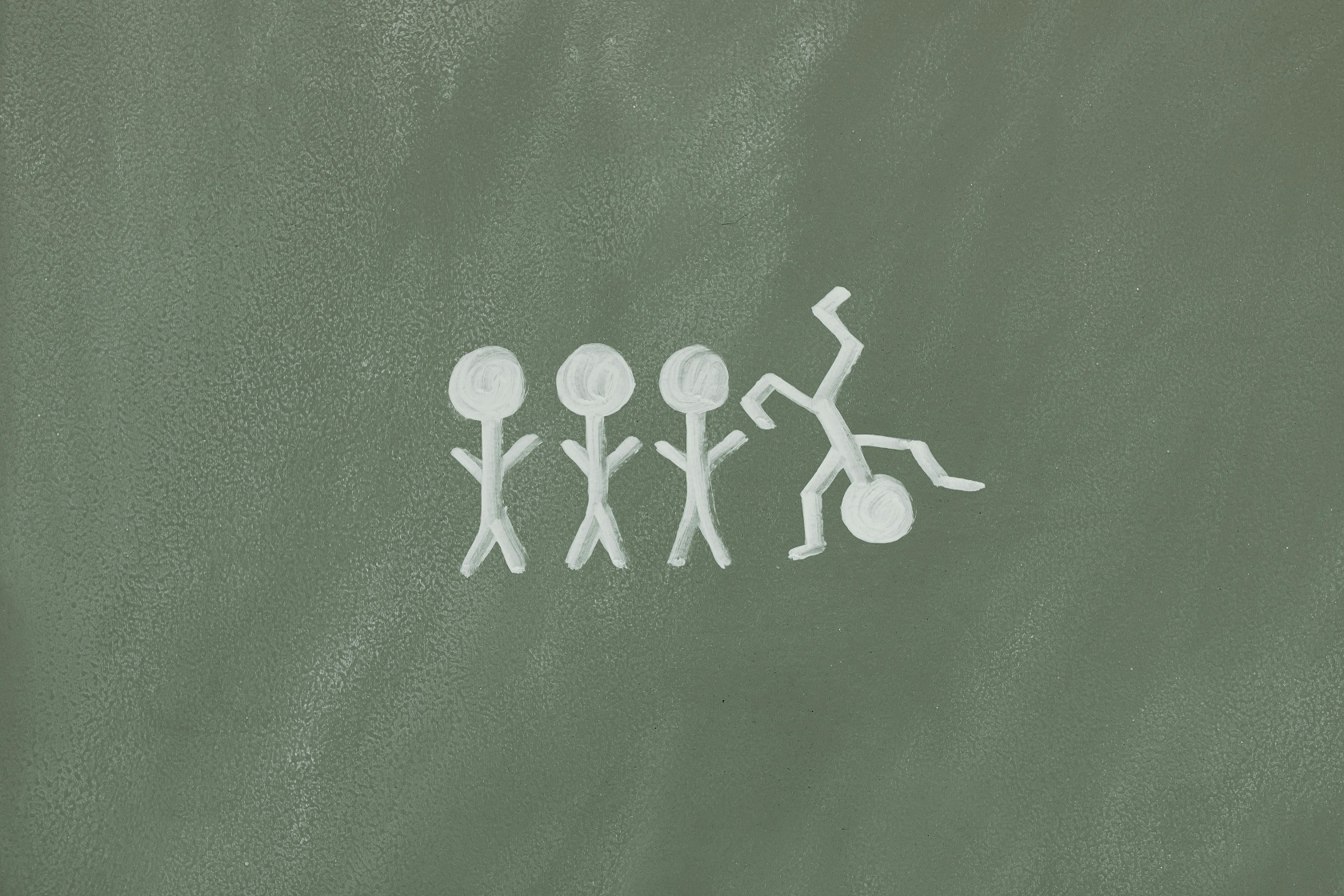Learn More: Recognizing Signs and Symptoms
Common Mental Health Conditions in Adults
Depression
Depression is a common but serious mental health condition that affects how a person feels, thinks, and handles daily activities. It goes beyond feeling sad or down and can cause a persistent sense of hopelessness, fatigue, and disinterest in things once enjoyed. Warning signs of depression may include changes in appetite or sleep patterns, difficulty concentrating, irritability, and a loss of energy or motivation. Some individuals may also experience feelings of worthlessness or guilt, and in severe cases, thoughts of death or suicide. Recognizing these signs early is crucial for seeking help and treatment. Depression can affect anyone- even someone who appears to live in relatively ideal circumstances.

Anxiety
Anxiety is a natural response to stress, but when it becomes overwhelming or persistent, it can interfere with daily life and evolve into an anxiety disorder. It often manifests as excessive worry or fear about everyday situations. Common signs and symptoms include restlessness, difficulty concentrating, rapid heart rate, shortness of breath, sweating, and an ongoing sense of dread or unease. Physical symptoms such as headaches, stomach issues, or muscle tension are also common. Anxiety can lead to avoidance of activities or situations that trigger distress, making early recognition and management important for maintaining well-being.

Substance Abuse
Substance Use Disorder (SUD) is a medical condition characterized by an inability to control the use of drugs or alcohol despite negative consequences. It involves a pattern of compulsive behavior, where individuals may prioritize the substance over other important aspects of life, such as relationships, work, or health. Signs and symptoms of SUD include increased tolerance (needing more of the substance to achieve the same effect), withdrawal symptoms when not using, neglecting responsibilities, and continuing use even when it causes harm. Other indicators can include mood swings, secrecy about substance use, and a loss of interest in activities once enjoyed. Early intervention is crucial to prevent long-term physical, mental, and social harm.

Grief
Bereavement refers to the period of mourning and grief following the loss of a loved one, while grief itself is the emotional response to that loss. Grief is a natural and deeply personal process that affects people in different ways. Common signs and symptoms include intense sadness, feelings of shock or disbelief, anger, guilt, and longing for the deceased. Physically, grief can cause fatigue, difficulty sleeping, and changes in appetite. Some people may experience trouble concentrating or withdrawal from social activities. The grieving process often comes in waves, with some moments feeling more intense than others. While it is a normal response, prolonged or complicated grief may require support to help cope with the emotional pain and adjust to life after loss.

Bipolar Disorder
Bipolar disorder is a mental health condition characterized by extreme mood swings that include emotional highs (mania or hypomania) and lows (depression). During manic episodes, individuals may feel euphoric, energetic, or unusually irritable, often engaging in impulsive or risky behaviors, speaking rapidly, or having racing thoughts. In contrast, depressive episodes involve feelings of sadness, hopelessness, and fatigue, with a loss of interest in activities, difficulty concentrating, and changes in sleep or appetite. These mood shifts can be unpredictable and may vary in intensity. Signs of bipolar disorder can also include changes in energy levels, poor decision-making during manic phases, and suicidal thoughts during depressive phases. Early diagnosis and treatment are crucial in managing the condition and reducing the impact on daily life.

Eating Disorders
Eating disorders are serious mental health conditions that involve unhealthy relationships with food, body image, and weight. The most common types include anorexia nervosa, bulimia nervosa, and binge-eating disorder. Anorexia is characterized by extreme food restriction and an intense fear of gaining weight, often leading to dangerously low body weight. Bulimia involves cycles of binge eating followed by purging behaviors like vomiting or excessive exercise to prevent weight gain. Binge-eating disorder involves consuming large amounts of food in a short period, often accompanied by feelings of guilt or loss of control. Signs and symptoms of eating disorders include drastic changes in weight, obsessive thoughts about food or body size, avoiding meals, withdrawal from social activities, and physical symptoms like dizziness, fatigue, or digestive issues. Early intervention is essential to prevent long-term health complications and emotional distress.

Psychotic Disorders
Psychotic disorders are severe mental health conditions characterized by a disconnection from reality, where individuals may experience disturbances in thinking, perception, and behavior. The most well-known psychotic disorder is schizophrenia, but other types include schizoaffective disorder and brief psychotic disorder. Common signs and symptoms of psychotic disorders include hallucinations (seeing or hearing things that aren’t there), delusions (strongly held false beliefs), disorganized thinking or speech, and erratic behavior. Individuals may also experience a lack of emotional expression, withdrawal from social interactions, and difficulty performing daily tasks. Psychotic episodes can be frightening and confusing for the person experiencing them, and early diagnosis and treatment are crucial to manage symptoms and improve functioning.

Personality Disorders
Personality disorders are a group of mental health conditions characterized by enduring patterns of behavior, thoughts, and emotions that deviate significantly from societal expectations. These patterns are inflexible and pervasive, affecting many areas of life, such as relationships, work, and self-image. There are various types of personality disorders, grouped into clusters based on similar traits: Cluster A (odd or eccentric behavior), Cluster B (dramatic, emotional, or erratic behavior), and Cluster C (anxious or fearful behavior). Signs and symptoms vary depending on the type but may include difficulties in forming and maintaining relationships, extreme sensitivity to criticism, impulsive or manipulative behaviors, mood swings, and distorted self-perception. These behaviors often cause distress to the individual and others. Treatment is essential for improving quality of life and helping individuals manage their symptoms.

Gambling Disorders
Gambling disorder, also known as compulsive gambling, is a behavioral addiction where individuals have an uncontrollable urge to gamble despite negative consequences. It involves repeated unsuccessful attempts to stop gambling, leading to significant personal, financial, and social problems. Signs and symptoms of gambling disorder include a preoccupation with gambling, increasing the amount of money wagered to achieve excitement, restlessness or irritability when trying to cut back, and chasing losses (continuing to gamble to recover money lost). People with this disorder may lie to hide their gambling, borrow money to fund it, or jeopardize important relationships and responsibilities. Early recognition and treatment, which often involves therapy and support groups, are crucial in preventing further harm.

Sleep-Wake Disorders
Sleep-Wake Disorders are conditions that disrupt the normal sleep patterns, affecting a person’s ability to fall asleep, stay asleep, or maintain a healthy sleep-wake cycle. These disorders can include insomnia (difficulty falling or staying asleep), sleep apnea (interruptions in breathing during sleep), narcolepsy (sudden and uncontrollable episodes of sleep), and circadian rhythm disorders (misalignment between an individual’s internal clock and the external environment). Signs and symptoms vary but may include excessive daytime sleepiness, difficulty concentrating, irritability, fatigue, restless sleep, and frequent waking during the night. These disorders can significantly impact daily functioning, mood, and overall health. Early recognition and treatment are essential to improve sleep quality and prevent long-term consequences on physical and mental well-being.

Post-Traumatic Stress Disorder
Post-Traumatic Stress Disorder (PTSD) is a mental health condition that develops after experiencing or witnessing a traumatic event, such as combat, natural disasters, accidents, or violence. It affects how individuals process fear and memories related to the trauma. People with PTSD may relive the event through flashbacks or nightmares, avoid situations that remind them of the trauma, and experience heightened anxiety or hypervigilance. Other signs and symptoms include difficulty sleeping, irritability, emotional numbness, and intense feelings of guilt or shame. These symptoms can significantly interfere with daily life, making early intervention and treatment, such as therapy or medication, critical to managing the disorder and improving quality of life.

Common Mental Health Conditions in Children
Anxiety Disorders
Anxiety disorders are among the most common mental health conditions in children. They may experience intense worry or fear in situations where other children feel comfortable.
- Signs and Symptoms:
- Excessive worry about future events, health, or family issues
- Physical symptoms like stomach aches, headaches, or fatigue
- Avoidance of social situations or activities they once enjoyed
- Difficulty sleeping or frequent nightmares
- Irritability or outbursts of anger
- Trouble concentrating or restlessness

Depression
Childhood depression involves persistent feelings of sadness or loss of interest that affect daily functioning. It often goes unnoticed, as children may not have the words to describe their feelings.
- Signs and Symptoms:
- Constant sadness, crying, or tearfulness
- Withdrawal from friends and family
- Low energy or fatigue, even after adequate rest
- Decreased interest in activities they once enjoyed
- Changes in appetite or sleep patterns (eating or sleeping too much or too little)
- Feelings of worthlessness or guilt
- Thoughts or expressions of suicide or self-harm

Attention-Deficit/Hyperactivity Disorder (ADHD)
ADHD is a neurodevelopmental disorder characterized by difficulty paying attention, hyperactivity, and impulsive behaviors that are not appropriate for the child’s age.
- Signs and Symptoms:
- Difficulty focusing or completing tasks
- Frequent daydreaming or trouble listening when spoken to
- Fidgeting or squirming in their seat
- Impulsivity, such as blurting out answers or interrupting others
- Difficulty staying organized or following instructions
- Trouble playing quietly
- Hyperactivity, such as running or climbing in inappropriate situations

Autism Spectrum Disorder (ASD)
ASD affects communication, social interaction, and behavior. Symptoms can vary widely but often include difficulties with understanding and responding to social cues.
- Signs and Symptoms:
- Delayed speech and language skills
- Difficulty making eye contact or understanding body language
- Limited interest in socializing or playing with peers
- Repetitive movements or speech (e.g., hand flapping or repeating words)
- Strong attachment to routines or specific interests
- Sensitivity to sensory stimuli (e.g., lights, sounds, or textures)

Oppositional Defiant Disorder (ODD)
ODD is characterized by a pattern of defiant, disobedient, and hostile behavior toward authority figures. These behaviors can significantly interfere with school, home, and social life.
- Signs and Symptoms:
- Frequent temper tantrums or episodes of anger
- Persistent argumentativeness with adults or refusal to comply with rules
- Blaming others for their mistakes or misbehavior
- Deliberately annoying or upsetting others
- Spiteful or vindictive behavior
- Low tolerance for frustration

Post-Traumatic Stress Disorder (PTSD)
Children who experience trauma may develop PTSD, where they re-experience the trauma in intrusive ways. This can happen after witnessing or experiencing violence, abuse, accidents, or natural disasters.
- Signs and Symptoms:
- Nightmares or flashbacks of the traumatic event
- Avoidance of places or situations that remind them of the trauma
- Hypervigilance (always being on guard)
- Sudden outbursts of anger or irritability
- Physical symptoms like headaches or stomach aches
- Emotional numbness or difficulty feeling positive emotions
- Difficulty concentrating or an exaggerated startle response

Eating Disorders
Although often associated with adolescents, eating disorders can also affect younger children. These disorders involve unhealthy eating behaviors and an intense focus on weight or body shape.
- Signs and Symptoms:
- Restricting food intake or following rigid eating patterns
- Preoccupation with weight, body shape, or food
- Excessive exercise
- Binge eating followed by guilt or shame
- Fear of gaining weight, even if the child is underweight
- Frequent trips to the bathroom after meals (a sign of purging)

Recognizing the Signs: When to Seek Help
Many mental health conditions in children can present as behavioral or physical issues, making it essential for caregivers, teachers, and healthcare providers to look for underlying emotional struggles. Some signs that may indicate a need for professional evaluation include:
- A sudden decline in school performance
- Changes in sleeping or eating habits
- Withdrawal from friends or activities
- Persistent negative mood or irritability
- Difficulty coping with daily stresses
- Physical complaints without a medical cause
Mental health conditions in children are treatable, especially when identified early. Recognizing the signs and symptoms of these disorders and seeking professional help is critical for ensuring children receive the support and care they need. Through therapy, medication, or a combination of interventions, children can learn to manage their mental health and thrive.
